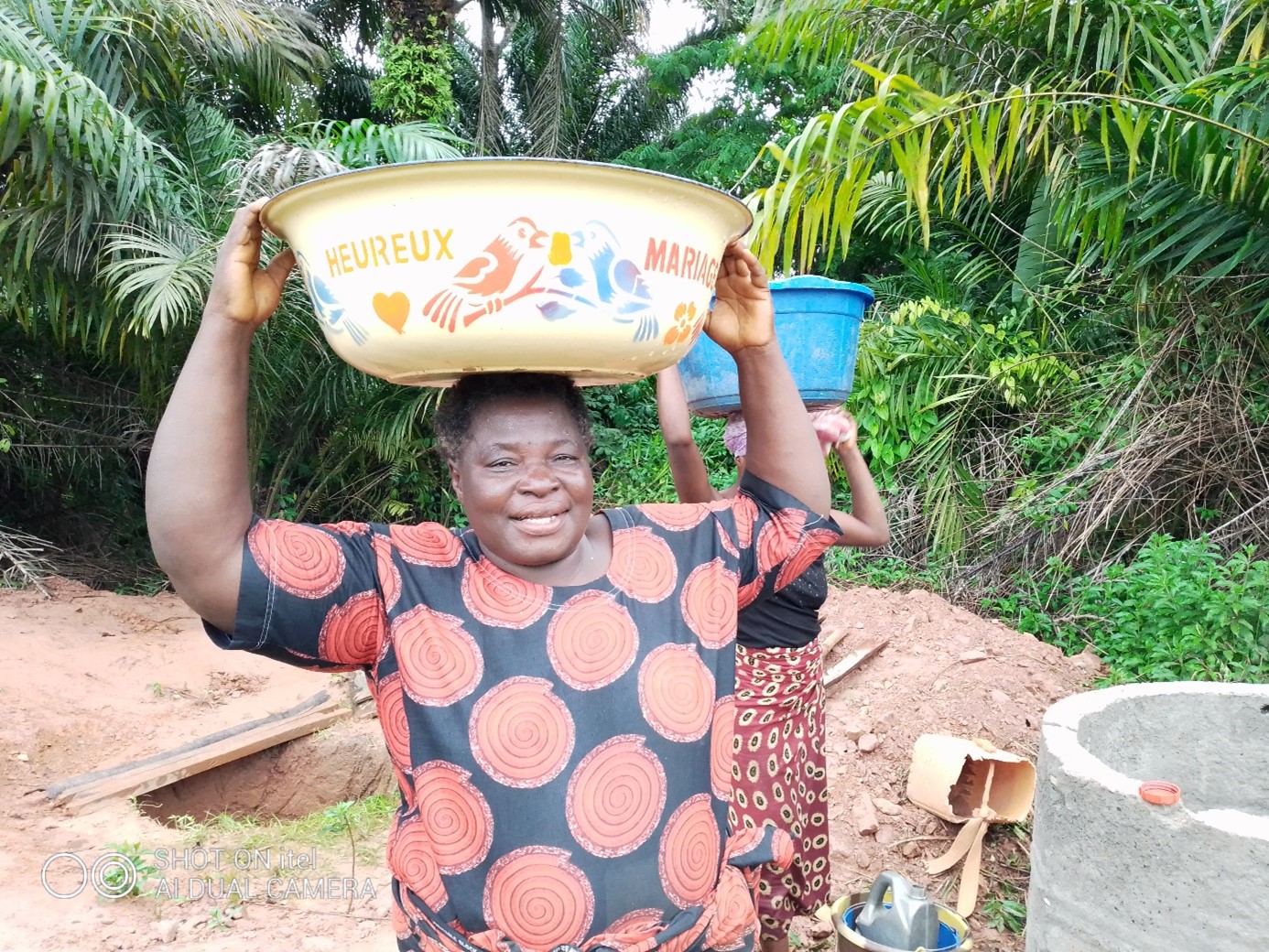In DRC, accessible water wells are saving lives
Récits

In the Democratic Republic of the Congo, a country long plagued by civil war and corruption, accessing clean water is a matter of life and death. For women and young girls, the problem is further exacerbated. Esther Mamona Wamba, a 39-year-old Congolese woman living in the village of Kiobo in the Seke Banza territory, knows this first-hand.
“There are times we cannot access water for days,” says Esther. “The paths we walk can be treacherous, even deadly. Not only is the terrain dangerous, but the path itself is a place where many women and girls have been attacked, raped and even killed.”
The Democratic Republic of Congo (DRC) is one of the poorest countries in the world. Approximately 72 per cent of the Congolese population lives on $2.30 Canadian a day – less than the cost of a bottle of water. Fresh water resources are sparce and the responsibility of collecting it most often falls on women like Esther and girls.
As the head of her household, Esther walks a minimum of six kilometres a day to access fresh drinking water. Not only is the distance a daily burden, the terrain, can be treacherous and at times it has prevented her from acquiring this necessity for her family. “When it rains the river floods making it almost impossible to travel,” says Esther. “There are times we cannot access water for days for fear of risking our lives.” Beyond the unpredictable topography, the path itself is a place where women and girls have been attacked, raped, and even killed. Daily travel to access water, threatens the safety and survival of Congolese women and girls.
In response to this reality, Cuso International has partnered with the local Congolese organization Actions concertées pour le développement durable (ACODED) to finance the development of five accessible, clean wells. These wells have been built in five villages to alleviate the burden of water collection and reduce the risk of violence for women like Esther. “These wells will abolish the need for women and girls to put their lives at risk,” says Virginie Ebner, Cuso International Country Representative DRC. “They will literally function to save lives.”
Young girls whose daily chores included days of travel to obtain fresh water will now be encouraged to attend school. Women who were at risk of encountering violence will be empowered in their communities with equitable roles and responsibilities. Communities that were divided will unify to celebrate a much-needed, long-term sustainable solution that benefits all current community members and future generations to come. “The supply of drinking water has been a problem for our village for decades,” says Esther. “When the information about this new well was announced, I cried tears of joy that in my life I would know what it means to have access to fresh water only 100 metres from my home.”
You can alleviate the burden of water collection and reduce the risk of violence for women like Esther by making a donation today.